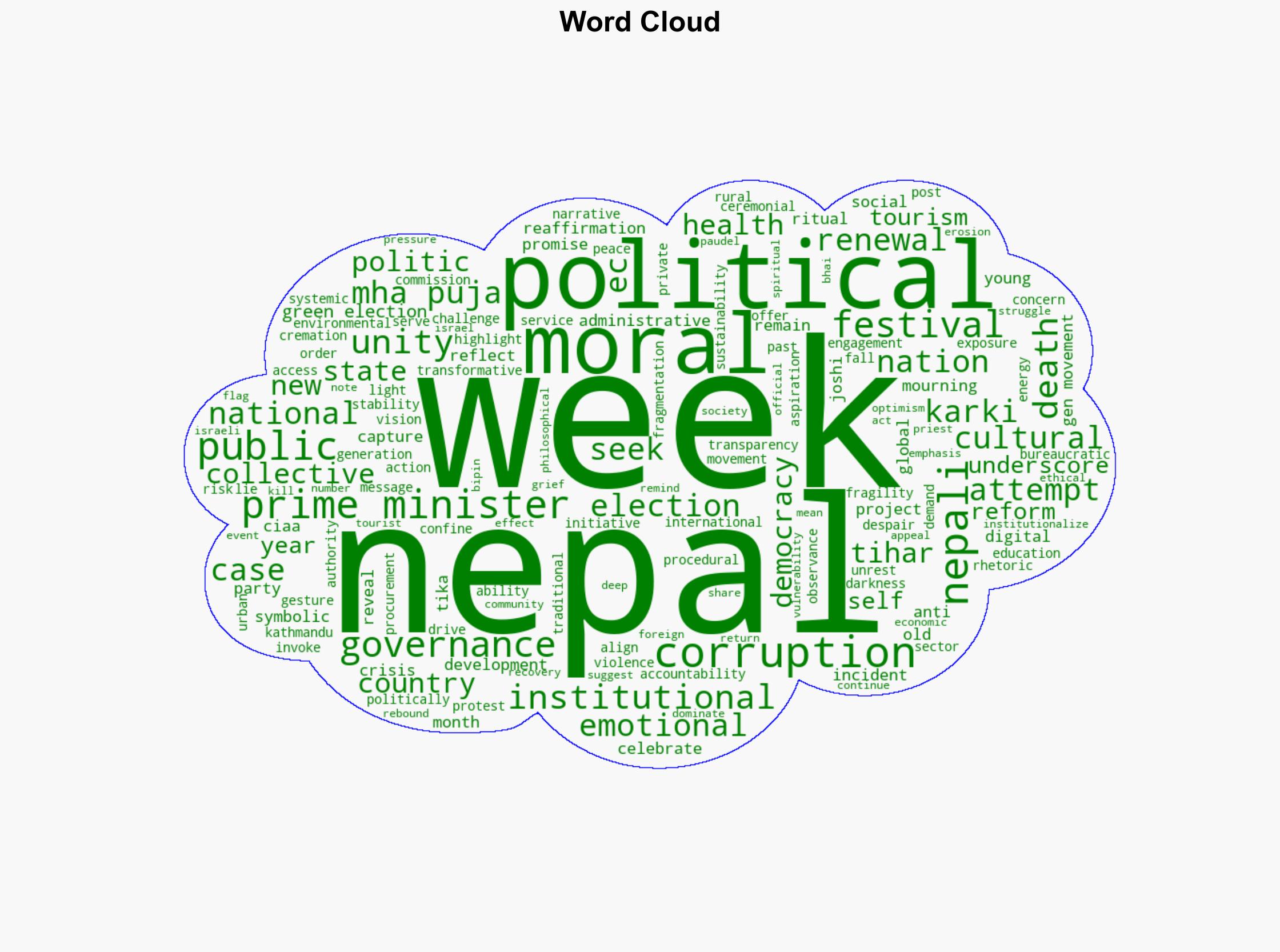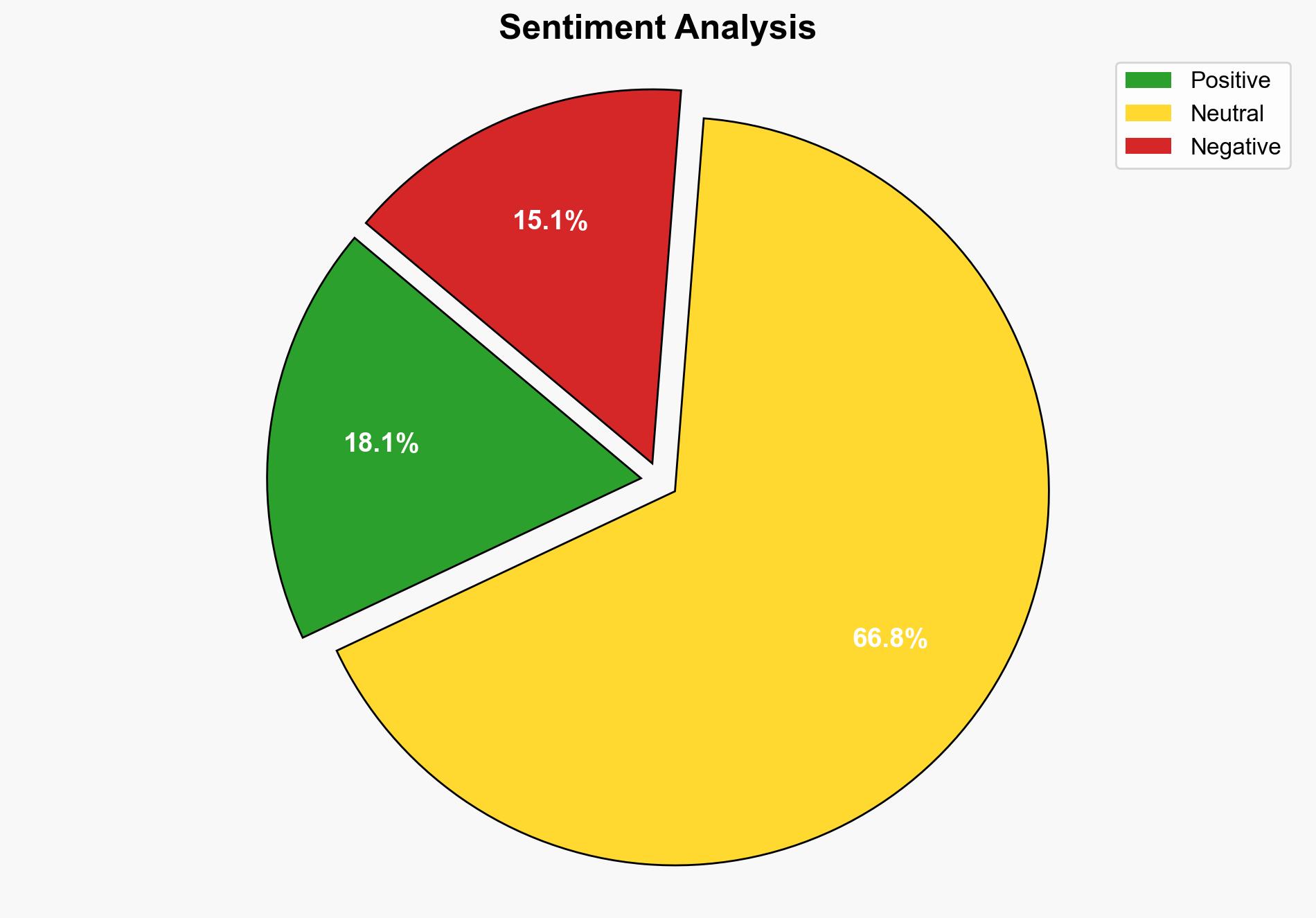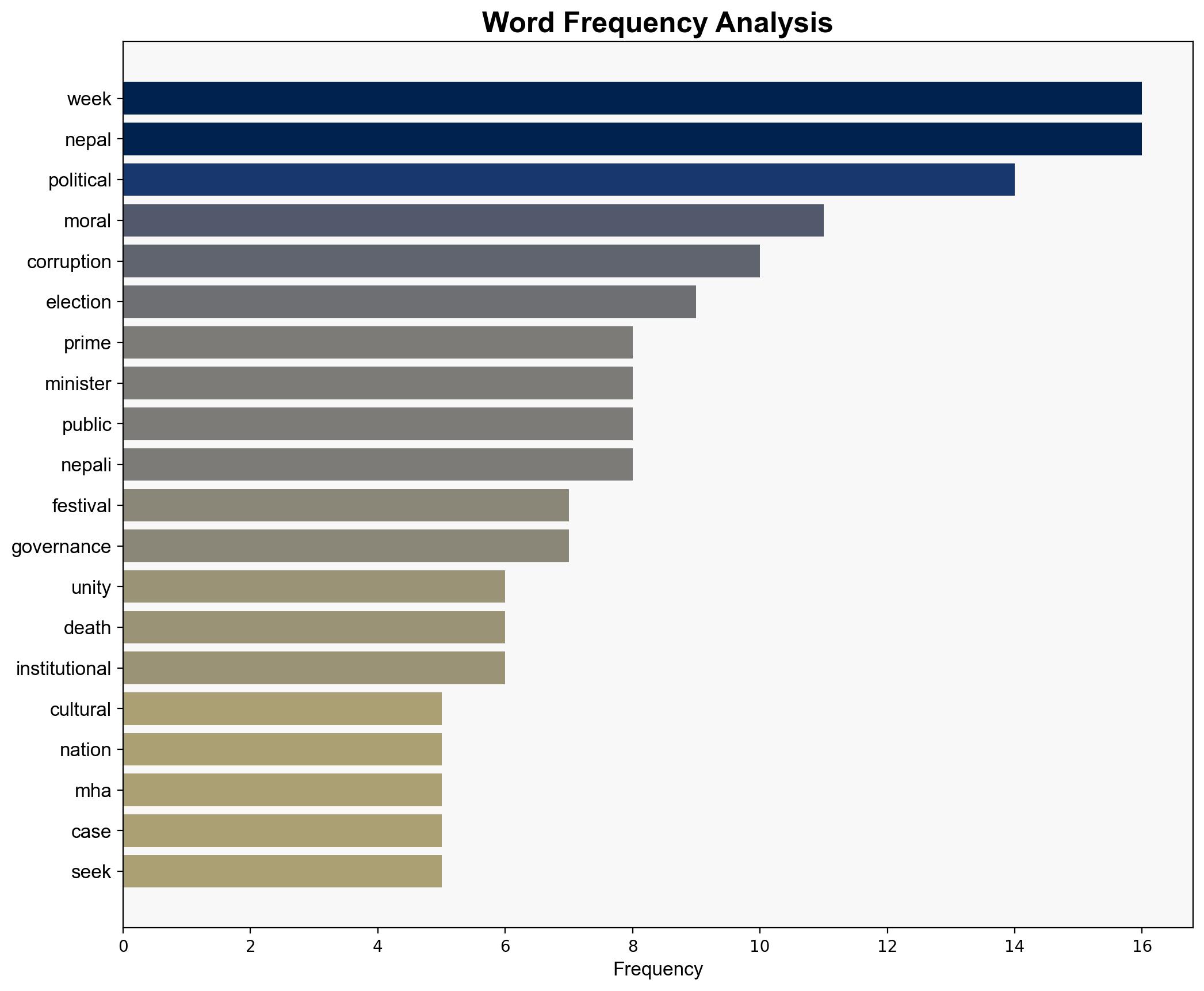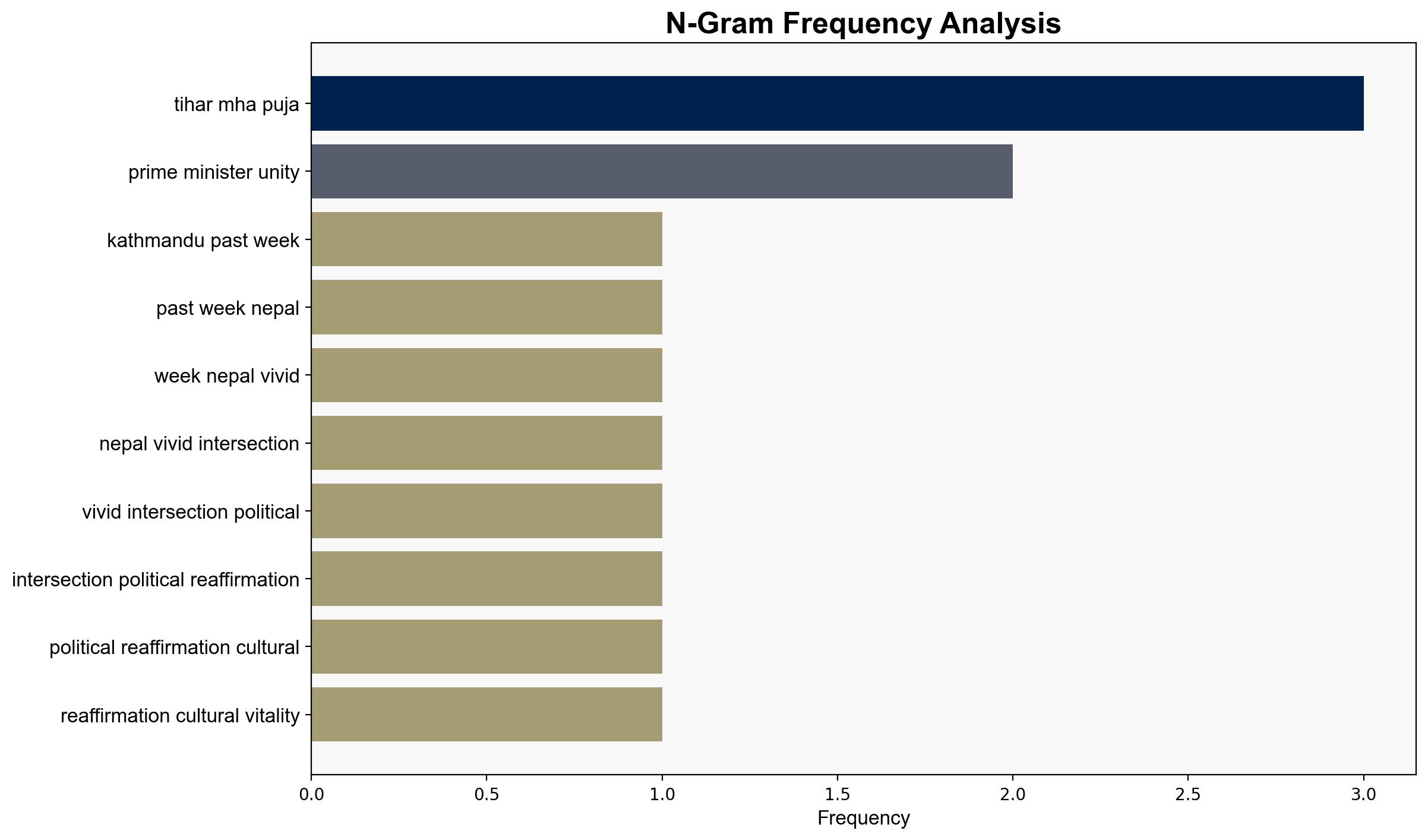Reminiscing last week Reflection Renewal and Accountability – Khabarhub.com
Published on: 2025-10-27
Intelligence Report: Reminiscing last week Reflection Renewal and Accountability – Khabarhub.com
1. BLUF (Bottom Line Up Front)
The political landscape in Nepal is at a critical juncture, with efforts to balance traditional values and modern democratic aspirations. The most supported hypothesis is that the current political maneuvers are genuine attempts to address corruption and democratic reform, albeit with significant challenges. Confidence level: Moderate. Recommended action: Support initiatives that enhance electoral integrity and transparency while monitoring potential disruptions from political fragmentation.
2. Competing Hypotheses
1. **Hypothesis A**: The political activities and messages from Nepal’s leadership are sincere efforts to reform governance, tackle corruption, and modernize the electoral process, aiming for a sustainable democratic future.
2. **Hypothesis B**: The political rhetoric and initiatives are primarily symbolic, designed to placate public discontent and international observers, with little intention or capability to enact meaningful change.
3. Key Assumptions and Red Flags
– **Assumptions for Hypothesis A**: The leadership has the political will and capacity to implement reforms. The public’s demand for transparency and accountability is strong enough to drive change.
– **Assumptions for Hypothesis B**: The leadership is more concerned with maintaining power than enacting genuine reforms. Public discontent can be managed through symbolic gestures.
– **Red Flags**: Limited digital infrastructure and literacy, particularly in rural areas, could hinder the implementation of a “green election.” The persistence of political fragmentation and regionalism may undermine cohesive reform efforts.
4. Implications and Strategic Risks
– **Political Risks**: Continued political fragmentation and ideological divisions could lead to unstable coalitions, affecting governance and reform efforts.
– **Economic Risks**: Failure to modernize electoral processes could deter foreign investment and aid, impacting economic stability.
– **Geopolitical Risks**: Nepal’s political instability may invite external influence, complicating regional dynamics.
– **Psychological Risks**: Public disillusionment with unfulfilled promises could lead to increased protests and civil unrest.
5. Recommendations and Outlook
- Encourage international support for Nepal’s electoral modernization efforts, focusing on infrastructure and voter education.
- Monitor political developments closely to identify shifts in power dynamics and potential flashpoints for unrest.
- Scenario Projections:
- Best Case: Successful implementation of reforms leads to increased political stability and economic growth.
- Worst Case: Political fragmentation and ineffective reforms result in increased unrest and economic decline.
- Most Likely: Incremental progress with ongoing challenges in political cohesion and public trust.
6. Key Individuals and Entities
– Sushila Karki
– Yagya Prasad Bhattarai
7. Thematic Tags
national security threats, political reform, electoral integrity, regional stability




